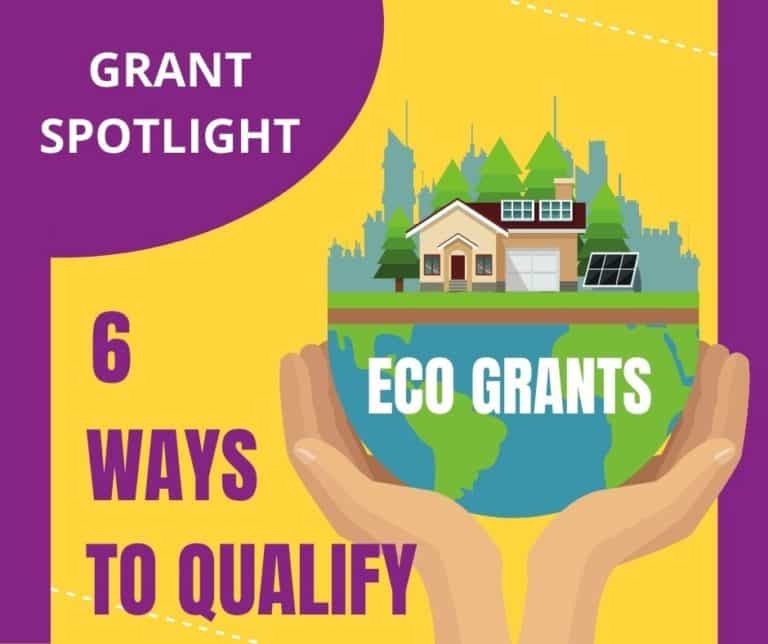Are you aware of the new ECO government grants worth £4 billion that are available for homeowners? Did you know that there are grants available to help with the installation of insulation and heating systems? If not, then you’re in luck! In this blog post, we will be discussing the six ways you can be eligible for insulation and heating grants in 2023. Keep reading to learn more!
Outline
- What is the Energy Company Obligation?
- Six Ways to Qualify for Energy Company Obligation grants
- Property requirements
- How to check eligibility and apply
What is the Energy Company Obligation?
The Energy Company Obligation (ECO) is a government energy efficiency scheme. ECO has two main objectives: to help reduce carbon emissions and to tackle fuel poverty. Grants are available for those who meet certain criteria, with the aim of making homes more energy efficient and therefore reducing energy bills. The scheme obligates energy suppliers to offer energy saving grants and if they don’t meet their targets for carbon reduction the Government will give them a hefty fine.
The fourth phase of this grant scheme started in July 2022 and it will run until March 2026. A whopping £4 billion of funding has to be spent by energy companies to avoid the fines. The good news is that if you own your home or are a private or housing association tenant, you could be eligible for a grant and they are very generous if you do qualify.
You’ll need to qualify yourself and there is six ways to qualify and additionally your property will also need to be eligible. In most cases you’ll need inefficient heating and insulation to get a grant to be installed to reach a ‘full project score’ according to Ofgem’s latest rules for eligibility.
Six Ways to Qualify for Energy Company Obligation grants:
There are six ways you can qualify for ECO grants in the ECO4 round of funding:
- Eligibility through receiving benefits (applications ac
- Eligibility through receiving Child Benefit
- Eligibility based on your income (ECO4 Flex)
- Eligibility based on being vulnerable (including having debts, being older or having young people in your family) (ECO4 Flex)
- Eligibility based on health reasons (ECO4 Flex)
- Eligibility based on where you live called “bespoke targeting”

1. Eligibility through receiving benefits
If you or anyone in your household receives any of the following benefits, then you can apply straight away for an ECO grant. There’s no income requirements but you need to have claimed the benefit within 12 months of the installation.
- Child Tax Credit
- Employment and Support Allowance (ESA) – Income Based
- Housing Benefit – new eligible benefit
- Income Support
- Jobseekers Allowance (JSA) – Income Based
- Pension Credit Guarantee Credit
- Pension Credit Savings Credit – new eligible benefit
- Universal Credit
- Working Tax Credit
To receive a grant, you will need to provide evidence that you (or someone in your household living at the property) has received the benefit. Installers have to carry out a ‘data match’ to evidence eligibility. They send a data match to the DWP via the Energy Saving Trust and they get either a ‘Matched’ or ‘Unmatched’ result.

2. Eligibility through receiving Child Benefit
If you receive Child Benefit but not any of the other benefits listed above you can still qualify for a grant but unlike the other benefits above you’ll need to meet additional income rules.
To qualify for an ECO grant through the Child Benefit route, your household income must be less than the rates below (before tax must not exceed the following maximum amounts:
A single adult with
– 1 child: £19,900
– 2 children: £24,800
– 3 children: £29,600
– 4 or more children: £34,500
Couples with
– 1 child £27,500
– 2 children: £32,300
– 3 children: £37,200
– 4 or more children: £42,000
To receive a grant, you will need to provide evidence that you receive Child Benefit and you’ll also need to provide evidence of income (e.g. bank statements, payslips or tax returns).

3. Eligibility based on your income
If your total household income (before tax) is less than £31,000 per annum, you will be eligible for a grant. Unlike options 1 & 2 above if you apply based on this income route the installer will need to apply for a declaration from your council to approve the grant. The installer will need evidence of your household income (e.g. bank statements, payslips or tax returns) to apply for the grant on your behalf.
This route to eligibility is part of the ECO4 Flex Scheme. Councils have to publish a Statement of Intent before applications can be submitted by installers through this route. Many councils have submitted their Statement of Intent but unfortunately many Councils have not and that prevents applicants from accessing these grants until they do. ECO4 Flex applications require the installer to submit an application to the council and the council will provide a declaration of eligibility.

4. Eligibility based on being vulnerable (including having debts, being older or having young people in your family)
If you, or anyone that lives you is considered vulnerable you can still access funding.
You will need to meet two of the following conditions:
- You receive Council Tax rebate (excluding single person rebates)
- You live in an area that is considered a Lower Super Output Area
- You receive free school meals due to a low-income
- You have been referred to your local authority for support by your energy supplier or Citizens Advice because you are struggling to pay your energy bills (local authorities will need to refer you)
- You have had energy debts for more than 13 weeks and are either in a debt repayment plan with your energy supplier or if you are repaying your debt through 3rd party deductions (not eligible if you have a pre-payment meter)
- You have a pre-payment meter that has been either self-disconnected or you have received supplier Discretionary / Friendly credit in the last 13 week; or a debt repayment plan with their energy supplier; or if you are repaying your fuel debt through 3rd party deductions
- You are vulnerable to living in a cold home NICE Guidelines which includes:
– people with cardiovascular conditions
– people with respiratory conditions (in particular, chronic obstructive pulmonary disease and childhood asthma)
– people with disabilities
– people with mental health conditions
– older people (65 and older)
– households with young children (from new‑born to school age)
– pregnant women
– people on a low income.
If two of the above conditions apply to you, use our grant checker to complete your application. If you apply based on this income route the installer will need to apply for a declaration from your council to approve the grant. The installer will need evidence that you are eligible and they’ll submit the application on your behalf.
This route to eligibility is part of the ECO4 Flex Scheme. Councils have to publish a Statement of Intent before applications can be submitted by installers through this route. Many councils have submitted their Statement of Intent but unfortunately many Councils have not and that prevents applicants from accessing these grants until they do. ECO4 Flex applications require the installer to submit an application to the council and the council will provide a declaration of eligibility.

5. Eligibility based on health reasons
If you have a health condition made worse by living in a cold home such as:
- Cardiovascular diseases
- Immunosuppressed
- Mobility issues
- Respiratory conditions
Households can be referred by a general medical practitioner, NHS Trust or a health board. You’ll need to evidence health-related conditions as part of the application process.
This route to eligibility is part of the ECO4 Flex Scheme. Councils have to publish a Statement of Intent before applications can be submitted by installers through this route. Many councils have submitted their Statement of Intent but unfortunately many Councils have not and that prevents applicants from accessing these grants until they do. ECO4 Flex applications require the installer to submit an application to the council and the council will provide a declaration of eligibility.

6. Eligibility based on where you live called “bespoke targeting”
Bespoke targeting allows installers or local authorities to submit an application where they have identified low income and vulnerable households. At the time of writing we don’t have full details of how this will work but if you check eligibility and leave your details we’ll let you know if it applies when full details have been released.
Property requirements
Okay so hopefully you qualify for grants in one of the six ways detailed above. If you do, that’s great! The next step is to see if your property qualifies.
In order to qualify for an ECO grant during the ECO4 phase of funding, your property must:
- have an Energy Performance Certificate (EPC) rating of D, E, F or G if you live in your own home (only 15% of the budget can be used on Band D properties so at the moment installers are only accepting properties with an E, F or G rating)
- have an Energy Performance Certificate (EPC) rating of E, F or G if you rent your home from a private landlord or housing association (note social housing properties can get grants if they have a Band D rating but only for ‘innovation’ measures)
- have inefficient heating that requires upgrading (this rules out properties with condensing or combi boilers)
- be your main residence (you cannot get an ECO grant for a second home but you can get grants for buy to let property if tenants are eligible through one of the six ways mentioned in this post)
How to check eligibility and apply
The first step is to pop your details into our free grant checker. If your property meets the requirements, you will be connected to an installer covering your area. The ECO grants aren’t the only grants available to make your home more energy efficient and our grant checker will check if you are eligible for other grants schemes. You can also register for updates for future schemes so you get notified if there are any options in the future.
The application process will vary depending on your installer but generally, it’s a pretty straightforward process. The installer will come to your property and assess what work needs to be done and they will invoice the energy company for the grant amount and they will take care of the application process for you.
Apply for a grant
Check eligibility for grants
Fill in the short form to see if you are eligible for Government grants.



